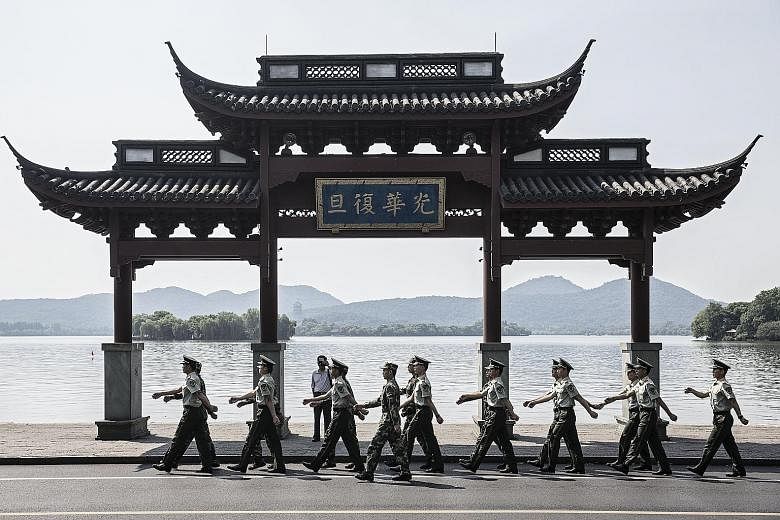A blueprint on innovation-led growth and the world's first framework for multilateral investment rules are among nearly 30 "tangible outcomes" of the Group of 20 (G-20) summit in Hangzhou that starts on Sunday.
Expectations are also high that world leaders like United States President Barack Obama and German Chancellor Angela Merkel will help rally global growth at the two-day summit by leading moves to strengthen policy coordination and avoid competitive currency devaluation.
But observers say the real significance of this G-20 summit is that it will mark China's coming-of-age as a leader in shaping international economic governance and dictating the global agenda. That would be a marked change from China's outsider role at the first G-20 summit in 2008 that grew out of that year's global financial crisis.
Other signs of China's larger aspirations as the summit's host for the first time are its push for implementation of the United Nations' 2030 sustainable development goals and for structural reforms within the forum of the world's 20 major economies. Prime Minister Lee Hsien Loong is attending at China's invitation.
"Undoubtedly, the Hangzhou G-20 achievement will strengthen China's position and influence in global affairs, to better match the country's rapidly growing economic power and potential to contribute to the world," said Professor Wang Yong, director of the Centre for International Political Economy at the Peking University.
He told The Straits Times that China, seeing the G-20 presidency as a chance to elevate its position as a leader in global governance, has "responded positively and creatively to the issues and problems plaguing the sustainable development of the global economy".
On Monday, UN secretary-general Ban Ki Moon welcomed efforts under China's presidency to "manage global headwinds and promote a new path for growth, trade and investment". Observers say China's political stability may give it an edge in playing a bigger global role over major powers like the US, Germany and France, which are heading for elections over the next year, and Britain which is dealing with the Brexit aftermath. In contrast, President Xi Jinping's leadership will continue for the next six years.
Last month, Professor John Kirton, co-director of the G-20 Research Group at the University of Toronto, wrote in a commentary published on China Radio International website: "Backed by a high degree of domestic political cohesion, President Xi brings to his role as G-20 chair, substantial international and G-20 summit experience and an approach to international affairs that puts the G-20 in first place."
But some are sceptical of China's ability to achieve its larger goal at the summit, which is themed "Toward an Innovative, Invigorated, Interconnected and Inclusive World Economy". Prof Wang said there is a gap between the expectations of the Chinese and the reality of G-20 politics. Reforms of global financial systems have been slower than expected, he noted, and China's influence is still limited.
Observers also say wariness over China's rise, fuelled by its rejection of an international tribunal ruling on its South China Sea claims, could thwart its agenda at the summit.
Professor Kerry Brown, director of the Lau China Institute at King's College in London, said the G-20 is part of China's progress from silent leadership under former president Hu Jintao to a more "proactive, and a more communicative, international role" under President Xi.
"The issue is how the rest of the world receives what China says, and the areas where they are able to find common ground," he said. "Otherwise, people will accuse China of just displaying vanity diplomacy with no real content."

